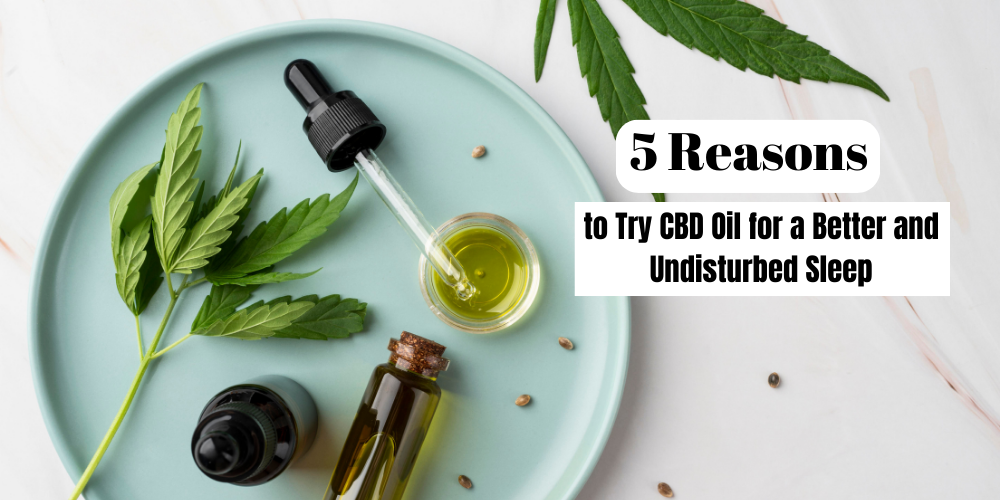Introduction to Hemp Seed Oil for Dogs
A. Definition and explanation of hemp seed oil
Hemp seed oil is a natural oil extracted from the seeds of the hemp plant (Cannabis sativa). Unlike CBD oil, hemp seed oil does not contain significant amounts of cannabinoids such as THC or CBD. It is rich in essential fatty acids, vitamins, minerals, and antioxidants, making it a valuable nutritional supplement for dogs.
B. Benefits and uses of hemp seed oil for dogs
Hemp seed oil offers a wide range of benefits for dogs’ overall health and well-being. It supports healthy skin and coat, promotes joint health, reduces inflammation and pain, boosts the immune system, and supports cardiovascular health. Additionally, hemp seed oil can be used as a dietary supplement to provide essential nutrients and support various bodily functions in dogs.
II. Understanding Hemp Seed Oil
A. Composition and nutrients in hemp seed oil
Hemp seed oil is renowned for its exceptional nutritional profile. It is rich in omega-3 and omega-6 fatty acids, including alpha-linolenic acid (ALA) and linoleic acid (LA), which are essential for dogs’ overall health. Additionally, hemp seed oil contains vitamins A, E, and D, as well as minerals such as calcium, magnesium, and potassium, further enhancing its nutritional value.
B. Differences between hemp seed oil and CBD oil
It’s essential to differentiate between hemp seed oil and CBD oil, as they serve distinct purposes. Hemp seed oil is derived from the seeds of the hemp plant and does not contain significant levels of cannabinoids. On the other hand, CBD oil is extracted from the flowers, leaves, and stalks of the hemp plant and contains cannabidiol (CBD) as a prominent compound. While CBD oil is known for its potential therapeutic effects, hemp seed oil primarily offers nutritional benefits.
III. Health Benefits of Hemp Seed Oil for Dogs
A. Promotes healthy skin and coat
Hemp seed oil is a powerful ally in maintaining healthy skin and coats for dogs. The omega-3 and omega-6 fatty acids in hemp seed oil help nourish the skin, reduce dryness and itchiness, and promote a lustrous and shiny coat. Additionally, the vitamins and antioxidants in hemp seed oil contribute to overall skin health and can alleviate certain skin conditions in dogs.
B. Supports joint health and mobility
Joint health is crucial for dogs, especially as they age or experience joint-related issues. The anti-inflammatory properties of hemp seed oil help reduce inflammation in the joints, alleviating discomfort and promoting improved mobility. The fatty acids present in hemp seed oil also support the lubrication of joints, contributing to long-term joint health in dogs.
C. Reduces inflammation and pain
Inflammation and pain can significantly impact a dog’s quality of life. Hemp seed oil contains gamma-linolenic acid (GLA), which possesses anti-inflammatory properties that can help alleviate inflammation and reduce pain associated with conditions such as arthritis or injuries. By incorporating hemp seed oil into a dog’s diet, pet owners may witness a decrease in inflammation-related symptoms and an overall improvement in their dog’s comfort.
D. Boosts immune system and overall wellness
A strong immune system is vital for dogs to ward off illnesses and maintain optimal health. Hemp seed oil’s nutritional content, including vitamins, minerals, and antioxidants, helps support the immune system and overall wellness in dogs. By boosting their immune system, dogs may experience increased resistance to common illnesses and improved overall vitality.
E. Supports cardiovascular health
Maintaining a healthy cardiovascular system is essential for dogs’ overall well-being. Hemp seed oil’s omega-3 fatty acids contribute to heart health by promoting healthy cholesterol levels, reducing the risk of heart disease, and supporting proper cardiovascular function. Incorporating hemp seed oil into a dog’s diet can have long-term benefits for their cardiovascular health.
IV. How to Use Hemp Seed Oil for Dogs
A. Dosage and administration guidelines
Determining the appropriate dosage of hemp seed oil for dogs depends on factors such as their size, weight, and overall health condition. It is crucial to follow the recommended dosage guidelines provided by reputable manufacturers or consult with a veterinarian to ensure accurate dosing.
B. Incorporating hemp seed oil into a dog’s diet
Hemp seed oil can be easily incorporated into a dog’s diet. It can be mixed with their regular food or added to homemade treats. Start by introducing small amounts and gradually increase the dosage as tolerated by the dog. Monitoring the dog’s response and consulting with a veterinarian can help determine the optimal dosage and frequency of use.
C. Safety precautions and considerations
While hemp seed oil is generally safe for dogs, it’s essential to consider a few precautions. First, ensure that the hemp seed oil is specifically formulated for pets and does not contain any additional ingredients that may be harmful to dogs. Additionally, always purchase hemp seed oil from reputable brands that prioritize quality and conduct third-party testing for purity and potency. If a dog has underlying health conditions or is taking other medications, it is advisable to consult with a veterinarian before introducing hemp seed oil into their diet.
V. Common Concerns and FAQs about Hemp Seed Oil for Dogs
A. Will hemp seed oil make my dog high?
No, hemp seed oil does not contain significant levels of THC, the psychoactive compound found in cannabis. It is derived from hemp plants bred specifically for their low THC content. Hemp seed oil is non-intoxicating and will not produce a “high” effect in dogs.
B. Are there any side effects or risks?
Hemp seed oil is generally well-tolerated by dogs, and side effects are rare. However, some dogs may experience mild digestive upset, such as diarrhea or an upset stomach, particularly when introduced to hemp seed oil for the first time. It is recommended to start with a low dosage and monitor the dog’s response. If any adverse effects persist or worsen, discontinue use and consult with a veterinarian.
C. Can all dogs benefit from hemp seed oil?
Most dogs can benefit from the nutritional properties of hemp seed oil. However, it is always advisable to consult with a veterinarian before introducing any new dietary supplement, especially if a dog has pre-existing health conditions or is taking medications. The veterinarian can provide personalized recommendations based on the dog’s specific needs.
D. Is hemp seed oil legal and regulated?
Hemp seed oil derived from hemp plants containing less than 0.3% THC is legal in many countries, including the United States. However, it’s essential to ensure that the hemp seed oil complies with local regulations and is sourced from reputable manufacturers who adhere to strict quality control standards.
VI. Case Studies and Testimonials
A. Success stories of dogs benefiting from hemp seed oil
Share real-life success stories of dogs that have experienced positive outcomes from using hemp seed oil. These stories can include improvements in skin and coat health, enhanced mobility, reduced inflammation, or overall wellness.
B. Customer testimonials and feedback
Include testimonials and feedback from satisfied customers who have incorporated hemp seed oil into their dogs’ routines. These testimonials can provide personal insights into the benefits and effectiveness of hemp seed oil and serve as social proof for potential users.
VII. Research and Scientific Evidence
A. Studies and research supporting the use of hemp seed oil for dogs
Highlight scientific studies and research that have investigated the effects of hemp seed oil on dogs. Discuss findings related to its nutritional benefits, impact on skin and coat health, joint support, anti-inflammatory properties, immune system modulation, and cardiovascular benefits. This section adds credibility to the claims made about hemp seed oil and demonstrates its potential as a natural supplement for dogs.
B. Veterinarian perspectives and recommendations
Include insights and recommendations from veterinarians who have experience with hemp seed oil and its benefits for dogs. Their professional expertise can provide additional validation and guidance for readers considering hemp seed oil for their pets.
VIII. Choosing and Purchasing Hemp Seed Oil for Dogs
A. Quality and sourcing considerations
Educate readers on the importance of selecting high-quality hemp seed oil. Discuss the significance of organic sourcing, extraction methods, and third-party testing for purity and potency. Encourage readers to choose hemp seed oil from reputable manufacturers who prioritize transparency and product quality.
B. Reading labels and understanding product claims
Guide readers on how to read product labels and understand the information provided. Explain common terms and claims found on hemp seed oil products, such as organic, cold-pressed, and full-spectrum. By empowering readers with this knowledge, they can make informed decisions when purchasing hemp seed oil for their dogs.
C. Finding reputable brands and retailers
Provide guidance on finding reputable brands and reliable retailers that offer high-quality hemp seed oil for dogs. Share resources and suggestions for conducting research, reading reviews, and seeking recommendations from trusted sources. Direct readers to reputable online platforms or local pet stores known for their commitment to quality products.
IX. Conclusion
A. Recap of the benefits and uses of hemp seed oil for dogs
Summarize the key benefits of hemp seed oil for dogs, including its ability to promote healthy skin and coat, support joint health, reduce inflammation, boost the immune system, and support cardiovascular health. Emphasize that hemp seed oil is a natural, nutritional supplement that can contribute to dogs’ overall well-being.
B. Importance of consulting with a veterinarian
Highlight the importance of consulting with a veterinarian before introducing hemp seed oil into a dog’s diet. Veterinarians can provide personalized advice based on the dog’s individual needs, health conditions, and medication interactions. Emphasize that veterinarians play a crucial role in guiding pet owners and ensuring the well-being of their furry companions.
C. Future potential and developments in hemp-based products for dogs
Mention the ongoing research and development in the field of hemp-based products for dogs. Discuss the potential for further advancements, new formulations, and an expanded understanding of hemp seed oil’s benefits. Encourage readers to stay informed and explore future developments that may further enhance their dogs’ health and wellness.
FAQs
- Can hemp seed oil replace the medication for my dog’s specific health condition?
Hemp seed oil is not intended to replace prescribed medications for specific health conditions in dogs. It is essential to consult with a veterinarian and follow their guidance regarding any existing medications or treatments. Hemp seed oil can be used as a natural supplement to support overall health and well-being but should not be used as a substitute for necessary medical interventions.
- Are there any age or breed restrictions for using hemp seed oil on dogs?
Hemp seed oil is generally safe for dogs of all ages and breeds. However, it is advisable to consult with a veterinarian, particularly for puppies, senior dogs, or dogs with underlying health conditions. Veterinarians can provide guidance specific to the dog’s needs and ensure appropriate dosage and usage recommendations.
- How long does it take to see results when using hemp seed oil for dogs?
The timeline for seeing results can vary depending on various factors, such as the dog’s individual health, metabolism, and the specific benefits being targeted. Some dogs may show improvements within a few weeks, while others may take longer. Consistency in providing the recommended dosage and allowing sufficient time for the body to respond is key. If concerns persist or worsen, it is advisable to consult with a veterinarian.



